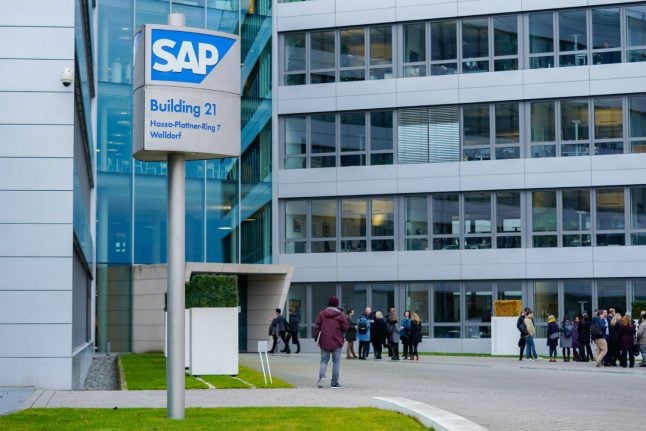“We are talking about a completely voluntary programme, we expect a number slightly higher than in 2015 of employees” to leave, chief financial officer Luka Mucic said, referring to a past move to cut 2,200 positions as SAP shifted focus to “cloud” computing from traditional software.
Earlier Tuesday the software giant, which is located in Walldorf, Baden-Württemberg, said it would launch a billion-euro restructuring plan after profits stagnated in 2018, while insisting it was on track to grow revenues and earnings this year.
Chief executive Bill McDermott said the departures were necessary to clear the way for SAP to make new bets on growth areas in the software industry.
“We are going to move our people and our focus to the areas SAP needs the most, AI (artificial intelligence), blockchain, internet of things, quantum
computing,” he said.
“We currently have 95,000 people in the company, if we talk in a few years it will be more,” McDermott added.
SAP was selected by Glassdoor as the best place to work in Germany in 2017, due to being a “great employer with many social benefits.”
SAP said it plans to spend between €800 million and €950 million “to further simplify company structures and processes”.
The firm is an industry leader in the comparatively new field of experience management.
Invented in the 1990s, the technique calls for collecting data on customers, employees, brands and products, aiming to sharpen firms' understanding of how they are perceived.
In 2018, SAP continued its transformation away from traditional one-off sales of business software to cloud computing, under which it charges customers a subscription fee to process data on the firm's computers.
Revenue from cloud subscriptions and support grew 32 percent over the year, to almost €3.8 billion.
SEE ALSO: SAP reaches sky high with cloud computing
Meanwhile software licenses and support revenue shrank one percent, although it remains a far bigger source of income for now at almost €15.8 billion.
Across the whole group, SAP aims to increase revenue from its cloud and software activities to between €22.4 and €22.7 billion in 2019.



 Please whitelist us to continue reading.
Please whitelist us to continue reading.
Member comments